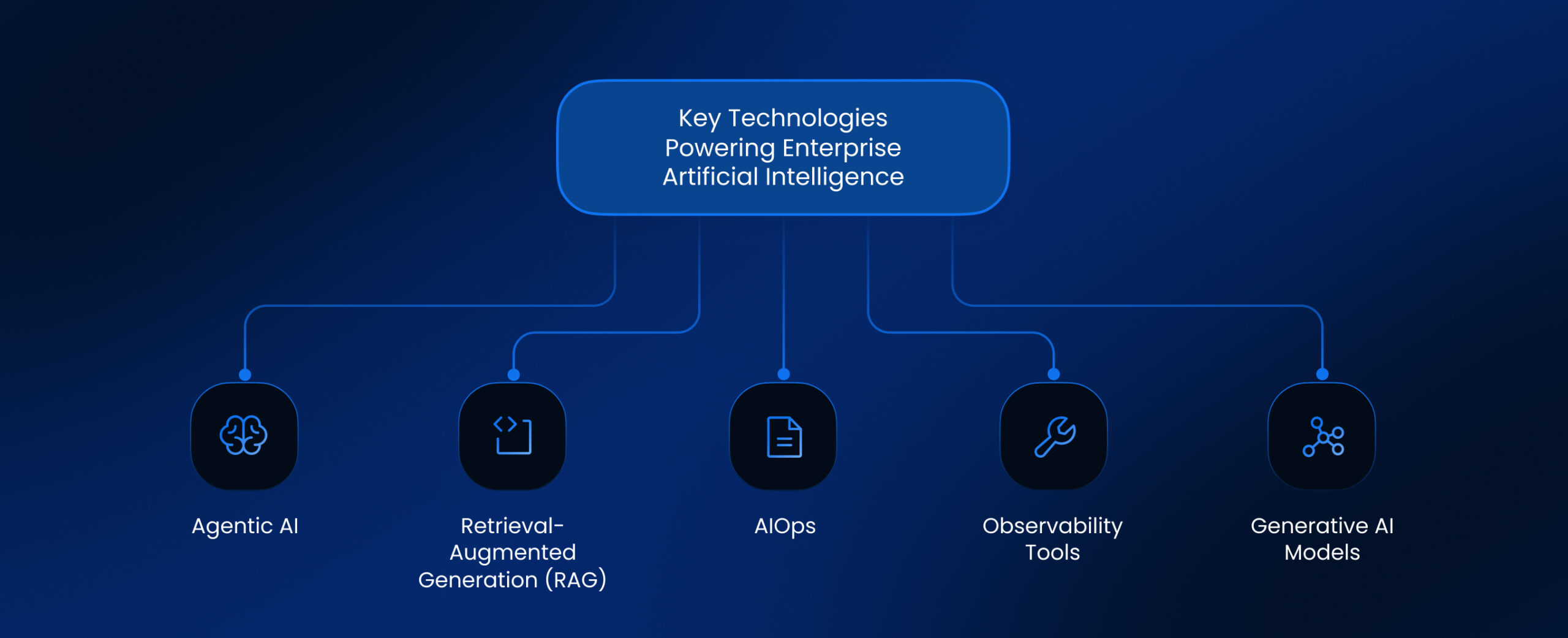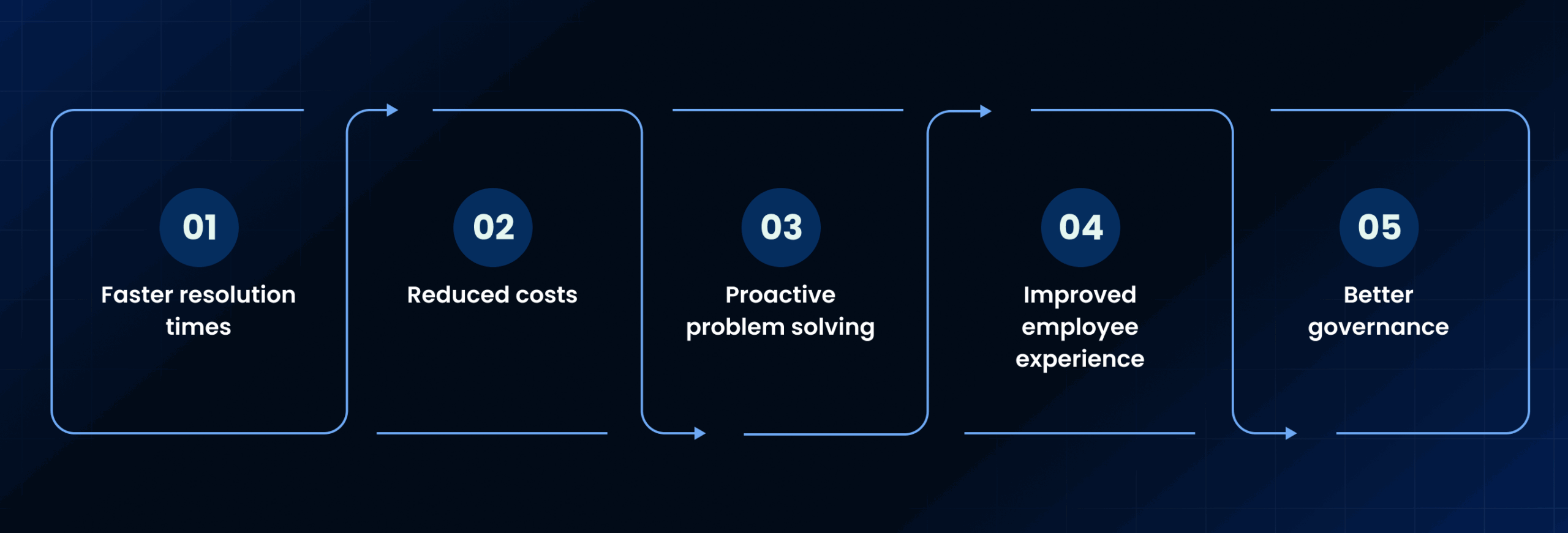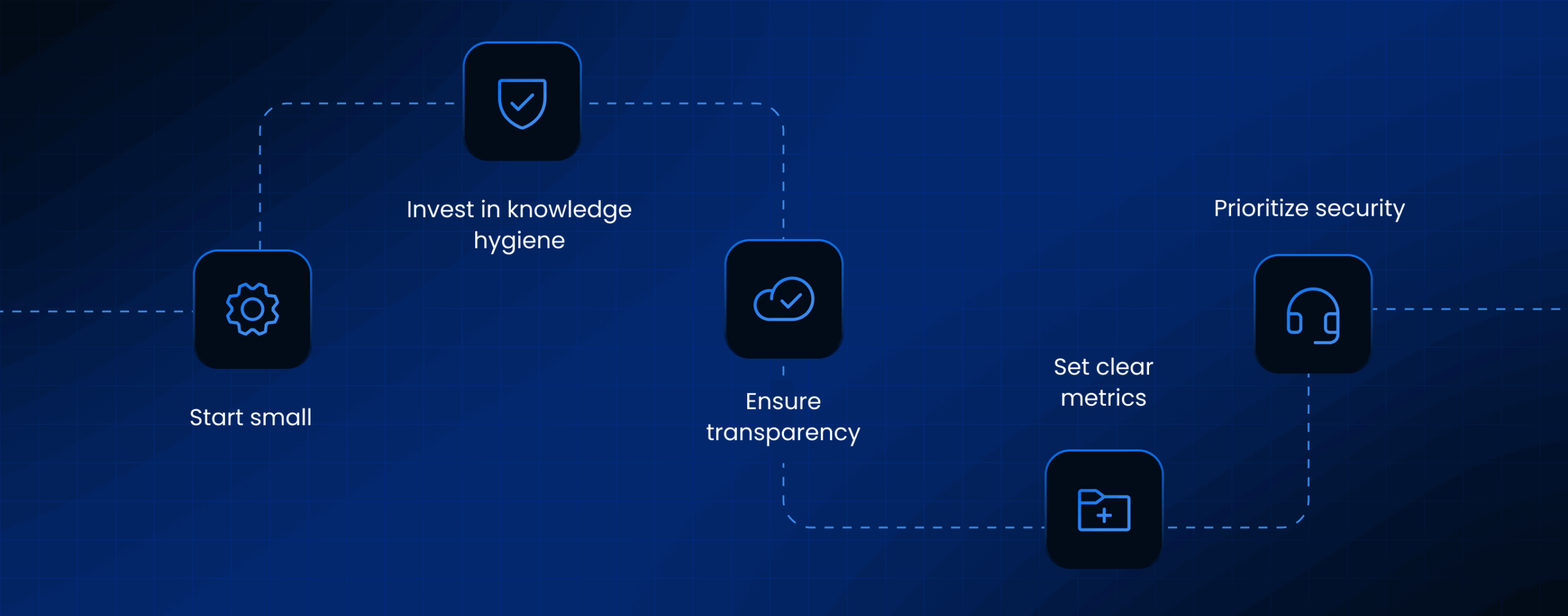Introduction
Enterprise artificial intelligence is no longer a futuristic idea. In 2025, enterprise AI has become a practical tool that technology leaders rely on to transform IT, HR, and Finance support. Instead of reacting to issues, organizations now use intelligent, enterprise-grade systems to predict, prevent, and resolve tickets faster than ever before. For CIOs, CTOs, and technology heads managing complex ticketing environments, this shift represents both a challenge and a significant opportunity.
What is Enterprise Artificial Intelligence
Enterprise AI refers to the use of advanced machine learning and intelligent automation inside large organizations. Unlike consumer-facing AI, this approach is built for scale, security, and integration with business systems. It can interpret requests, analyze data, and take action without needing constant human supervision.
For example, a password reset ticket no longer needs to sit in a queue. Instead, an intelligent agent can verify the request, reset the password, update the system, and close the ticket, all within seconds. This is what makes Enterprise-grade AI different from simple chatbots or rules-based automation.
Key Technologies Powering Enterprise Artificial Intelligence
Several technologies power this new wave of enterprise innovation:
- Agentic AI: Intelligent agents that take proactive actions, not just provide answers.
- Retrieval-Augmented Generation (RAG): Ensures that answers come from verified enterprise knowledge.
- AIOps: Connects operational monitoring with intelligent remediation.
- Observability Tools: Links metrics, logs, and traces directly to ticketing workflows.
- Generative AI Models: Provide natural, conversational interfaces for employees.
Together, these technologies create ticketing systems that are predictive, efficient, and trusted.

Enterprise Artificial Intelligence Use Cases Across Functions
Enterprise AI touches every support function:
- IT: Automated resolution of password resets, access requests, system alerts, and device provisioning.
- HR: Handling leave approvals, onboarding tasks, payroll queries, and benefits questions.
- Finance: Managing expense approvals, invoice processing, compliance checks, and reimbursements.
By extending across functions, intelligent systems reduce ticket backlogs and help employees get instant support.
Benefits of Enterprise-grade AI for Modern Enterprises
For technology leaders, the benefits are both operational and strategic:
- Faster resolution times: Common tickets close within seconds.
- Reduced costs: Intelligent agents scale without adding headcount.
- Proactive problem solving: Systems identify and prevent incidents before they disrupt business.
- Improved employee experience: Workers spend less time waiting and more time doing meaningful work.
- Better governance: Every action is logged, monitored, and auditable.
These outcomes make Enterprise AI a clear advantage for large organizations in 2025.

Challenges in Adopting Enterprise Artificial Intelligence
Despite its promise, adoption is not always easy. Technology leaders often face:
- Integration complexity: Linking new tools with legacy systems.
- Data quality issues: Poor or outdated documentation reduces accuracy.
- Security concerns: Protecting sensitive data while using intelligent agents.
- Change management: Building trust among employees and IT teams.
- Cost management: Preventing runaway expenses with long agent workflows.
Addressing these challenges requires a well-planned strategy.
Building a Successful Enterprise-grade AI Strategy
A successful strategy balances technology, people, and process:
- Start small: Automate high-volume, low-risk tickets such as password resets.
- Invest in knowledge hygiene: Keep policies and documentation current.
- Ensure transparency: Show employees how AI reaches its conclusions.
- Set clear metrics: Track resolution times, auto-resolve rates, and user satisfaction.
- Prioritize security: Establish controls, audits, and human approval for sensitive workflows.
By following these steps, CIOs and CTOs can scale confidently.

How Leena AI Enhances Enterprise Artificial Intelligence
Leena AI is pioneering agentic AI for enterprise ticketing. Our AI agent goes beyond answering queries, it can take actions across IT, HR, and Finance systems. For example, in IT, it can run diagnostics, update configurations, provision software, or close tickets end-to-end.
This agent-first approach creates measurable value: faster ticket resolution, lower operational costs, and happier employees. Unlike basic chatbots, Leena AI agents work with enterprise-grade security, transparency, and governance, making them a trusted partner for technology leaders.
The Future of Enterprise AI with Leena AI
Looking ahead, enterprise artificial intelligence will become more predictive, more autonomous, and more integrated into business strategy. Agents will prevent issues before they occur, anticipate employee needs, and deliver insights that shape decision-making.
Leena AI is leading this future with agentic AI designed for enterprises. By focusing on IT, HR, and Finance, we help organizations turn their ticketing systems from a cost center into a strategic enabler of efficiency.
FAQs on Enterprise Artificial Intelligence
1. What is enterprise artificial intelligence?
It is the use of advanced intelligent systems inside enterprises to automate tasks, resolve tickets, and improve decision-making.
2. How does enterprise artificial intelligence improve IT support?
It automates common IT tickets, connects with monitoring tools, and enables proactive issue resolution.
3. What are the main benefits of enterprise artificial intelligence?
Key benefits include faster resolution times, lower costs, improved employee satisfaction, and better governance.
4. What challenges do companies face with enterprise artificial intelligence?
Common challenges include integration with existing systems, data accuracy, security, and employee trust.
5. How can enterprises start using enterprise artificial intelligence?
The best way is to begin with low-risk, high-volume tickets and expand once the system proves reliable.
6. How does Leena AI use enterprise artificial intelligence?
Leena AI creates agentic AI that resolves IT, HR, and Finance tickets end-to-end, delivering measurable business outcomes.
7. What is the future of enterprise artificial intelligence?
The future lies in proactive, predictive, and autonomous systems that prevent issues before they arise.













